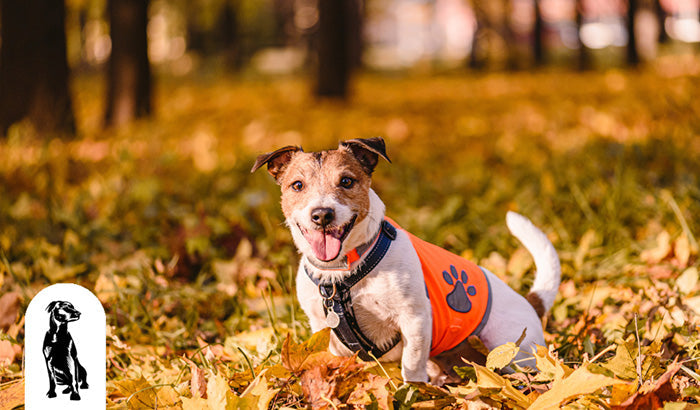
To a lot of people, the benefits of dog parks outweigh the disadvantages; however, as a dog owner, it's essential to consider both sides.
Being a dog owner is fun and comes with seemingly countless benefits. Harvard Medical School has ongoing research that shows there are numerous health benefits to owning a dog.
The research shows that owning a pet, especially a pooch, can ease anxiety, stress, and depression. It can also reduce loneliness, encourage exercise and activity, and even improve cardiovascular health.
While there are many perks to owning a dog, it also comes with a lot of responsibility. Between grooming, initial and ongoing veterinary care, training, socialization, exercising, chipping, and so much more, there's a lot to take on as an owner. In addition to all these responsibilities, owners must decide their stance on dog parks.
If you're new to dog ownership, it's important to research your options and weigh the pros and cons of dog parks so you can decide for yourself and your furry friend.
Continue reading to learn more about the benefits of dog parks and their drawbacks below.

The benefits of dog parks
Dog socialization:
- It's a great way for dogs to socialize with other dogs.
- It’s an excellent opportunity for dogs to socialize with other people who aren't their owners.
People socialization:
- It's an awesome way for people to interact with one another.
- Dog-oriented people can engage.
- Opportunity to schedule doggy playdates.
Physical and mental stimulation:
- It's an excellent way for dogs to exercise off their leashes.
- Dog parks give pups the opportunity to get adequate physical and mental exercise. This results in lessening destructive and troublesome behaviors in general, which benefits the owners, dog, and society in general.
Educational benefits:
- It is a great way for owners to observe and learn more about dogs.
- It’s an opportunity for owners to learn from more experienced, knowledgeable owners.
- A chance for well-mannered dog advocates to show how they helped their dog become a well-mannered pup.
Community and societal perks:
- Dog parks are designated for dogs only, which lessens the chance of owners taking the leash off their dogs in on-leash parks.
- Dogs are less likely to encounter cars, skateboarders, rollerbladers, bikes, etc.
- They are more likely to encounter individuals who love dogs.
- Designated parks provide a place for community dog activities and events.
The disadvantages of the dog park
For dogs:
- Potential of danger from aggressive, untrained, or otherwise behaviorally problematic dogs.
- Possible encounters with intact (non-neutered or non-spayed) dogs.
- Potential for disease and parasites to be shared.
- Not suitable for large and small dogs at the same time.
- Possibility of injury
- Huge potential for over-excitement and lack of impulse control.
For people:
- Potential of danger from untrained, aggressive, or otherwise behaviorally problematic dogs.
- Possibility for parasite and disease transmission.
- The potential of lawsuits arising from bad dog interactions.
- Possibility of physical injury on dog park accessories and hazards.
For the community
- Some people may not understand the concept of dog parks and will abuse the park.
- Some individuals will not pick up after their dog.
- Some people might leave their dogs unattended.
- Some may allow their dogs to indulge in inappropriate, dangerous, or otherwise bad behavior.
- Some owners do not know enough about their dogs to know if a dog park is safe or appropriate for their pup.
- Possibility for noise.
- Potential for liability-related problems and lawsuits
7 considerations about dog parks
There are numerous factors that determine whether a dog park is a good fit for you and your dog. Here are seven considerations you should make for you and your canine companion:
1. How does your dog prefer to play?
Does your pup like to play with other dogs? Not all dogs do. Yes, dogs are inherently social, but that doesn't mean that they will all automatically get along. After all, we, as the social human species, don’t get along with every other human.
If your pooch is a confident, social butterfly, they might be a great dog park candidate. If they are skittish or fearful around other dogs, they may be much happier skipping the park. Remember that with every bad experience, their fear will likely deepen.
Some dogs are perfectly content with a small group of canine buddies, while others prefer the company of their human over any pup. Bringing a dog that doesn't enjoy the company of other dogs to an off-leash park may not be fair to your dog or any other that may approach them.
2. What is your pup's play style?
Before making your decision to take Fido to a dog park, make sure to determine what type of play best suits him. Think about what your canine buddy likes to do, and plan accordingly. For example, does your pup love to play fetch? If chasing balls in a wide open space without dealing with other dogs, bringing him into a crowded dog park might not set them up for success.
3. How much training does your dog have?
To be fair to other dog park goers and keep your pup safe, your canine friend should have an excellent recall so you can call her back when you see trouble brewing. Ideally, your dog will have a full range of well-trained behaviors and good manners before visiting an off-leash park.
4. How is your local dog park built?
Not all dog parks are created the same. A well-built dog park is a fenced-in area that features amenities such as water, varied terrain, dog park accessories, equipment to play on, and more. This is so dogs have plenty to do to keep themselves environmentally engaged so they don’t bother each other.
Parks that are overcrowded, boring, and small greatly increase the chances of a negative encounter. Other important dog park features to watch out for include double-gated entrances so escapes can't make their way out as newcomers arrive and separate spaces for large and small dogs.
5. How is your go-to dog park managed?
Every dog park should have rules and people willing to enforce them, but that's different from the reality of most parks. Municipal parks often need more management. Rarely will you find someone in attendance to deal with conflicts that could arise. City-managed dog parks compete with playgrounds, sports courts, and picnic areas for staff attention.
It's more likely that privately owned dog parks will have staff on site to assist promptly with rule enforcement and conflict resolution. Some parks require attendees to register and give numbered armbands for owners to wear while in the park. This allows for more effective reporting and investigation of issues.
6. How is your dog park maintained?
Dog fights are not the only potential threat to the safety of your pooch. Poorly maintained dog park accessories, equipment, and fences can injure dogs just as easily as dog altercations. Park maintenance should mow grass regularly. Park maintenance should also conduct routine inspections and promptly repair any damage. Your park should be getting its fair share of the park maintenance budget.
7. What is the culture like at your local dog park?
If the majority of owners are chatting with one another or are on their phones instead of supervising their pups' activities, there will inevitably be issues. If owners are oblivious to their dogs' poor behavior (bullying, aggression, mounting, etc.), it's probably not a great place for you or your four-legged friend to hang out.
Think about visiting your local park on different days at different times to feel out the various types of crowds. You may find more managed and knowledgeable owners gathering at different times than you originally visited.

Driving to the dog park? Get Plush Paws car seat covers for your vehicle
Whether you decide the benefits of dog parks outweigh the pros and are driving there, or you travel frequently with your pup in the car, Plush Paws is a must-have for your vehicle.
Our top-of-the-line, high-quality car seat covers are designed for dog owners who love to bring their pets along with them. Whether it's a quick drive to a local dog park, a fun hiking adventure, or a pit stop at the pet store for toys and treats, our car seat covers ensure that your vehicle remains clean and maintains its condition while providing a comfortable, safe space for your pup.
At Plush Paws, we understand the importance of these outings for you and your dog and have tailored our products to improve these experiences. Our covers protect your car from dirt, fur, moisture, and more, adding comfort and luxury to your furry friends' traveling experience.
Our covers are crafted from durable and premium materials and are built to withstand daily wear and tear while ensuring your pup's comfort. Installation is quick and easy, making the transition from a pet-free vehicle to a pet-ready car smooth and painless.
We know that every car and pup is unique, so we offer a variety of styles and sizes to best suit different vehicles and breeds. To best match your style and your pet's needs, our versatile covers come in various colors and fit most car models.
Contact Plush Paws today to find the right car seat cover for your canine companion and embark on the countless journeys to come!
